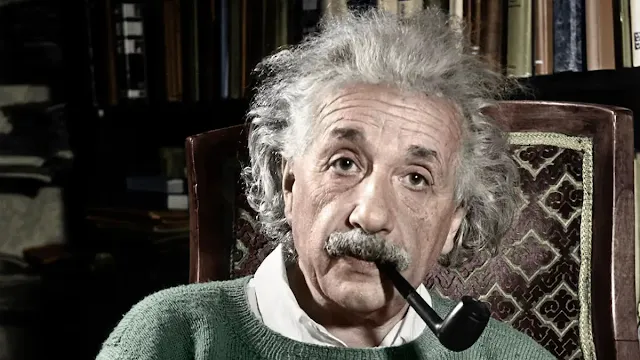Albert Einstein, a name synonymous with genius, revolutionized the world of science with his groundbreaking theories and unparalleled intellect. From reshaping our understanding of space and time to laying the foundation for modern physics, Einstein's contributions have left an indelible mark on human history.
Early
Life and Education
Albert Einstein was born on March 14, 1879, in Ulm, in the Kingdom of Württemberg in the German Empire. Growing up in a middle-class Jewish family, Einstein showed early signs of brilliance, although he struggled with formal education and authority. His fascination with mathematics and physics led him to pursue higher studies despite facing challenges.
Theories
and Scientific Contributions
Special
Theory of Relativity
Einstein's most famous work, the Special Theory of Relativity, published in 1905, proposed that the laws of physics are the same for all non-accelerating observers and that the speed of light in a vacuum is constant, regardless of the observer's motion.
General
Theory of Relativity
Building upon his Special Theory of Relativity, Einstein developed the General Theory of Relativity, published in 1915. This theory fundamentally changed our understanding of gravity, describing it as a curvature in the fabric of spacetime caused by the presence of mass and energy.
Photoelectric
Effect
In 1905, Einstein also explained the photoelectric effect, wherein electrons are emitted from a material when it is exposed to light. This work laid the foundation for the quantum theory of light and earned him the Nobel Prize in Physics in 1921.
Mass-Energy
Equivalence
E=mc², perhaps the most famous equation in physics, encapsulates Einstein's theory of mass-energy equivalence, which states that mass and energy are interchangeable and that a small amount of mass can be converted into a large amount of energy.
Personal
Life and Legacy
Beyond his scientific endeavors, Einstein led a rich personal life, marrying twice and fathering three children. He was a pacifist and a humanitarian, advocating for civil rights and nuclear disarmament. Einstein's legacy extends far beyond his scientific achievements, encompassing his moral and philosophical principles.
Pop
Culture Influence
Einstein's iconic image, with his wild hair and distinctive mustache, has permeated popular culture, becoming a symbol of genius and intellect. His name is often invoked in contexts ranging from scientific discussions to everyday conversation, cementing his status as a cultural icon.
Criticism
and Controversies
Despite his revered status, Einstein was not immune to criticism and controversy. His pacifist views and political affiliations drew ire from some quarters, while his scientific ideas faced skepticism and opposition from certain quarters within the scientific community.
Einstein's
Lasting Impact
Einstein's contributions continue to shape the trajectory of modern science, with his theories forming the basis of countless technological advancements and scientific inquiries. His legacy serves as an inspiration for future generations of scientists and thinkers.
Awards
and Honors
Throughout his lifetime, Einstein received numerous awards and honors, including the Nobel Prize in Physics, the Copley Medal, and the Franklin Medal, among others. His name remains synonymous with excellence and achievement in the field of physics.
Einstein's
Political Views
Einstein was deeply engaged in politics and social issues, advocating for pacifism, socialism, and civil rights. He was vocal in his opposition to war and militarism, using his platform to promote peace and international cooperation.
Einstein's
Quotes
Einstein's wit and wisdom are encapsulated in a myriad of memorable quotes, offering insights into his philosophy and worldview. From profound reflections on the nature of reality to humorous quips about life and human nature, Einstein's words continue to resonate with audiences worldwide.
The
Einstein Archives
The Einstein Archives, housed at the Hebrew University of Jerusalem, contain a treasure trove of documents, correspondence, and manuscripts spanning Einstein's life and career. These archives offer a glimpse into the mind of a scientific genius and provide valuable resources for scholars and researchers.
Einstein's
Death
Albert Einstein passed away on April 18, 1955, at the age of 76, leaving behind a legacy that transcends generations. His contributions to science, philosophy, and humanity ensure that his memory will endure for centuries to come.
Einstein's
Contributions Beyond Physics
Beyond his groundbreaking work in theoretical physics, Einstein made significant contributions to diverse fields such as philosophy, politics, and education. His insights into the nature of reality and the human condition continue to inspire scholars and thinkers across disciplines.
Einstein's
Influence on Modern Science
Einstein's theories continue to shape the forefront of scientific inquiry, with researchers building upon his work to unravel the mysteries of the universe. From the study of black holes to the search for a unified theory of physics, Einstein's legacy looms large in the ongoing quest for knowledge.
Conclusion
Albert Einstein's legacy is one of unparalleled brilliance and intellectual daring. His theories revolutionized our understanding of the universe, while his humanitarian principles continue to inspire generations. Einstein's enduring impact serves as a testament to the power of human curiosity and the boundless potential of the human mind.
FAQs
1.Was
Einstein a practicing scientist or more of a theoretical thinker?
Einstein
was primarily a theoretical physicist, but his theories have been confirmed
through experimentation and observation.
2.Did
Einstein ever win a Nobel Prize?
Yes,
Einstein was awarded the Nobel Prize in Physics in 1921 for his explanation of
the photoelectric effect.
3.What
is Einstein's most famous equation?
Einstein's
most famous equation is E=mc², which describes the equivalence of mass and
energy.
4.Did
Einstein have any notable political affiliations?
Einstein
was associated with socialist and pacifist movements and was an outspoken
advocate for civil rights and international peace.
5.What
is the significance of Einstein's theories in modern physics?
Einstein's
theories, particularly the Special and General Theories of Relativity, continue
to form the foundation of modern physics and have led to numerous technological
advancements.



0 Comments